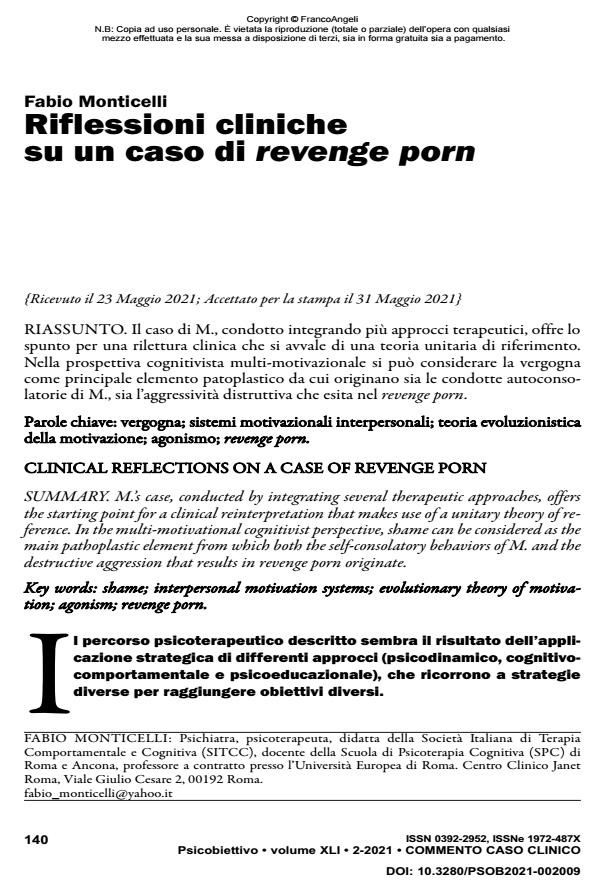Clinical reflections on a case of revenge porn
Journal title PSICOBIETTIVO
Author/s Fabio Monticelli
Publishing Year 2021 Issue 2021/2
Language Italian Pages 6 P. 140-145 File size 98 KB
DOI 10.3280/PSOB2021-002009
DOI is like a bar code for intellectual property: to have more infomation
click here
Below, you can see the article first page
If you want to buy this article in PDF format, you can do it, following the instructions to buy download credits

FrancoAngeli is member of Publishers International Linking Association, Inc (PILA), a not-for-profit association which run the CrossRef service enabling links to and from online scholarly content.
M.’s case, conducted by integrating several therapeutic approaches, offers the starting point for a clinical reinterpretation that makes use of a unitary theory of reference. In the multi-motivational cognitivist perspective, shame can be considered as the main pathoplastic element from which both the self-consolatory behaviors of M. and the destructive aggression that results in revenge porn originate.
Keywords: shame; interpersonal motivation systems; evolutionary theory of motivation; agonism; revenge porn.
Fabio Monticelli, Riflessioni cliniche su un caso di revenge porn in "PSICOBIETTIVO" 2/2021, pp 140-145, DOI: 10.3280/PSOB2021-002009